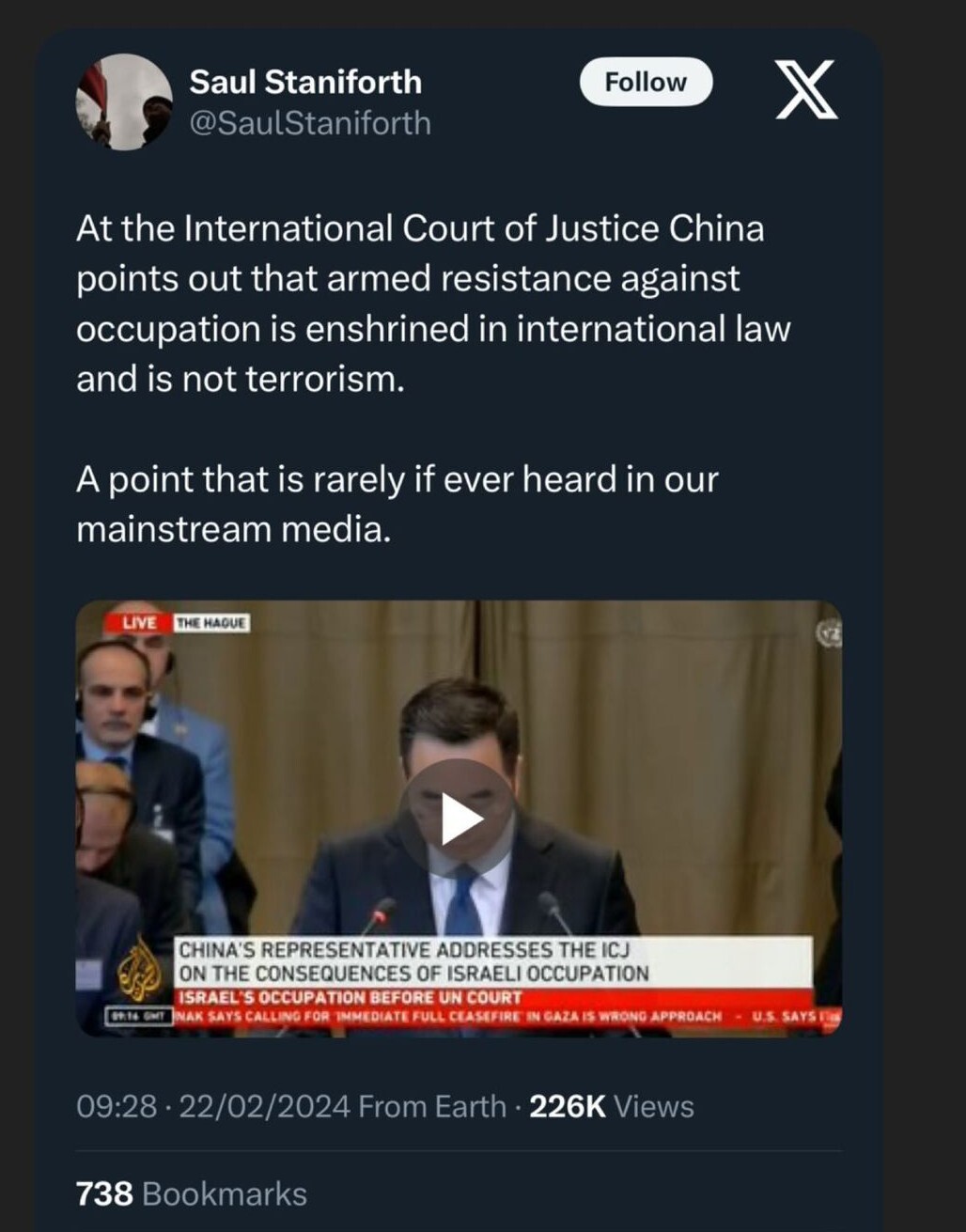https://archive.is/XUjOH
spoiler
Hundreds of Ukrainian troops may have been captured by advancing Russian units or disappeared during Ukraine’s chaotic retreat from the eastern city of Avdiivka, according to senior Western officials and soldiers fighting for Ukraine, a devastating loss that could deal a blow to already weakening morale.
The Russian capture of Avdiivka has emerged as a significant symbolic loss for Ukrainian troops, a sign of the battlefield impact of the failure of the U.S. Congress, so far, to approve more military assistance as dwindling supplies of artillery shells make it even harder to hold the line.
Estimates of how many Ukrainians were captured or missing vary, and a precise count may not be possible until Ukraine solidifies new defensive lines outside the city. But two soldiers with knowledge of Ukraine’s retreat estimated that 850 to 1,000 soldiers appear to have been captured or are unaccounted for. The Western officials said that range seemed accurate.
American officials say the loss of Avdiivka is not a significant strategic setback, arguing that Russian gains in eastern Ukraine will not necessarily lead to any collapse of Ukrainian lines and that Moscow is unlikely to be able to follow up with another major offensive.
But the capture of hundreds of soldiers could change that calculus. American officials have said in recent days that morale was already eroding among Ukrainian troops, in the wake of a failed counteroffensive last year and the removal of a top commander. Because of those problems, the officials said, Ukraine’s military has struggled with recruitment.
Ukrainian military officials have said they want to mobilize up to 500,000 more people, but the request has met political resistance and is stalled in Parliament. The capture of hundreds of soldiers, especially those with battlefield experience, would make the need for more troops more acute and complicate the effort to recruit more.
As a result, the fall of Avdiivka may be more important than it initially seemed.
The Ukrainian military command has acknowledged that some soldiers were captured in the retreat from Avdiivka but has tried to downplay the numbers and the significance.
On Saturday, Gen. Oleksandr Tarnavsky, the commander of Ukraine’s military fighting in the area, said on the Telegram messaging application that the retreat had gone according to plan but “at the final stage of the operation, under pressure from the superior forces of the enemy, some Ukrainian servicemen fell into captivity.” He did not disclose how many troops were captured.
Dmytro Lykhovii, a spokesman for General Tarnavsky, disputed reports that hundreds of soldiers had been captured, calling it misinformation. But he acknowledged that Russia had captured some service members and that a “certain number” of soldiers were missing.
A senior Ukrainian official insisted that only six soldiers had been taken prisoner in the retreat from the city. Those soldiers, from the Third Separate Assault Brigade, were captured after they ran out of ammunition and lost communication with the Ukrainian military, the official said.
But some soldiers and Western officials said a failure to execute an orderly withdrawal, and the chaos that unfolded Friday and Saturday as the defenses collapsed, was directly responsible for what appears to be a significant number of soldiers captured.
They said the Ukrainian withdrawal was ill-planned and began too late. The soldiers and Western officials spoke on the condition of anonymity to discuss sensitive intelligence assessments that are at odds with Ukrainian government statements.
Retreating under withering artillery fire, drones and airstrikes is one of the most difficult military maneuvers, challenging commanders to minimize loss of life and allow units to fall back without ceding more land than intended.
Based on interviews with soldiers, Ukraine’s forces were unprepared for how quickly the Russian advance in Avdiivka gathered speed last week.
Ukraine tried to buy time for its regular infantry forces to pull back, out of the city, using its special operation forces and the elite Third Separate Assault Brigade to cover the retreat. But the units could not slow the Russian advance or get every Ukrainian soldier out.
Senior Ukrainian officials say the Russian forces also suffered heavy losses in the battle. Russia took Avdiivka by sheer mass, sending in troops and armored vehicles until Ukrainian defenses folded. Thousands of Russia soldiers were killed and wounded, the officials said.
A chaotic retreat is not inevitable. Withdrawing troops without taking heavy losses is difficult, but possible, if it is done in a deliberate, unrushed operation, according to American strategists.
In Avdiivka, Ukraine appeared to have waited too long to start withdrawing and the frantic retreat quickly turned costly.
For the Ukrainians, the challenge of pulling out of Avdiivka was compounded by the fact Russia had surrounded the city on nearly three sides. A single paved road was the most viable way into and out of the city. That route, which Ukrainian troops nicknamed the road of life, came under direct threat earlier this month, making the withdrawal far more dangerous.
When Ukrainian forces began pulling back, unverified open source videos and photos showed units retreating under artillery fire and bodies scattered along roads and in tree lines. Ukrainian military units have long struggled to communicate with each other because they often have different radio equipment. Soldiers with knowledge of the retreat said the communication problems were a factor in the withdrawal, leading to soldiers being captured, killed and wounded.
The soldiers interviewed by The New York Times suggested that some units pulled back before others were aware of the retreat. That put the units left behind at risk of encirclement by the Russians.
Since the war began nearly two years ago, Russian forces have tried to encircle and capture Ukrainian forces. While well-prepared defenses and overhead drones have prevented many of those maneuvers from succeeding, in Avdiivka, the Russian encirclement appears to have worked. Western officials suggest the maneuver was one reason soldiers were captured during the retreat.
Unverified videos posted to social media also showed Russian forces executing Ukrainian troops in and around Avdiivka. On Sunday, the prosecutor’s office in Ukraine’s eastern Donetsk oblast said on Telegram it was launching an investigation into “into the shootings of unarmed Ukrainian prisoners of war in Avdiivka and Vesele.”
The Kremlin itself does not appear to have been prepared for the speed of the Ukrainian collapse in Avdiivka. Often Kremlin propaganda pushed through the state-controlled news media leads the themes on Russian social media, said Jonathan Teubner, the chief executive of FilterLabs AI, which studies Russian messaging and public opinion. But as the Ukrainian defense in Avdiivka collapsed, the discussions on Russian social media started shifting before the Kremlin settled on new messaging.
“Russia wasn’t really prepped for this either in terms of a prepared propaganda blitz,” Mr. Teubner said. “They have now pounced on it, but haven’t managed to launch a successful coordinated messaging campaign yet.”
Prisoners of war are one of the biggest challenges to morale in any war. Ukraine has pressed Russia repeatedly to agree to exchange prisoners.
As of November, the Ukrainian government said that Russia had 3,574 Ukrainian military personnel in captivity.
In January, Ukraine used a Western-provided Patriot missile to take down a Russian cargo plane that officials thought was carrying missiles and munitions. Russian officials said it was transporting Ukrainian prisoners of war. American officials have said it appeared probable that some Ukrainian prisoners were on the plane.






 We did it, Joe! We fixed inflation!
We did it, Joe! We fixed inflation!